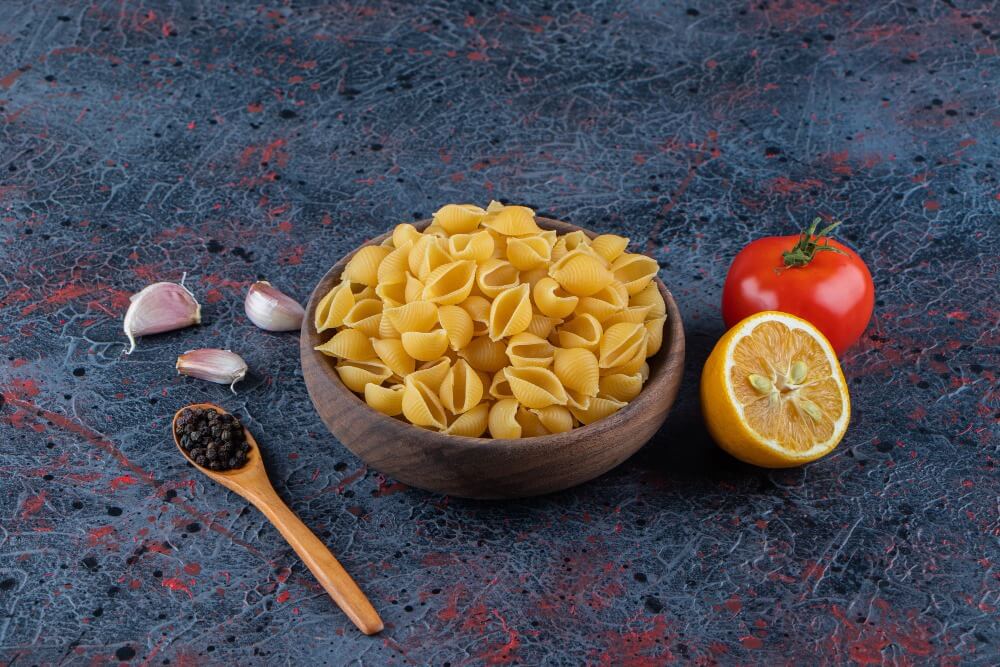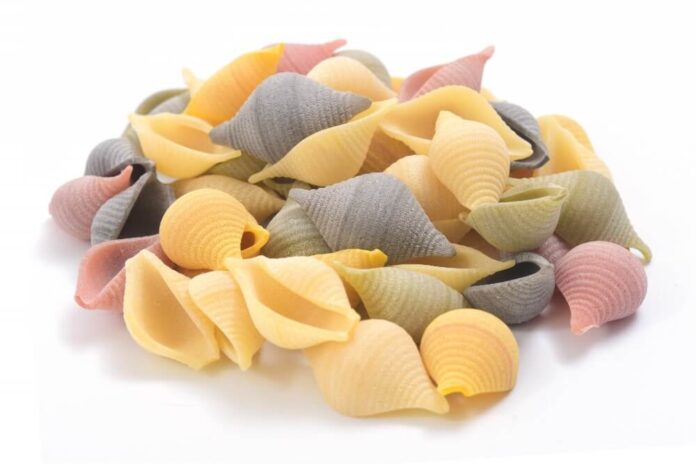Imagine heading to your favorite grocery store with a recipe in mind, only to find an empty spot where once a variety of pasta options resided. This scenario is becoming all too common for many individuals because of the ongoing Jumbo Pasta Shells Shortage.
Yes, that’s correct; these beloved ingredients for countless recipes are increasingly hard to come by, leaving pasta enthusiasts in puzzles. But what’s behind this unexpected Jumbo Pasta Shells shortage, and what does it mean for your dinner table?
In this post, we will share with you all that we know about this incident. So, keep reading!
Jumbo Pasta Shells Shortage is Hitting Hard on Pasta Lovers
For anyone who’s ever found solace in a hearty, cheese-stuffed shell or enjoyed the simple pleasures of a well-executed pasta bake, the current jumbo shells scarcity is indeed a culinary calamity.
These oversized, shell-shaped pasta are perfect for holding flavorful fillings or sauces, making them a staple in many households.
Unfortunately, the shortage isn’t just causing a hiccup in dinner plans; it’s forcing families to rethink their meal budgets. As the availability dwindles, prices inevitably climb, putting a strain on wallets.
And it’s not just jumbo shells; the shortage extends to various pasta types, affecting meals across the board.
What is Causing the Jumbo Pasta Shells Shortage in 2023?

Several factors can be traced to this recent pasta predicament. So, let’s take a look at each of them to better understand why this shortage is happening at this time.
#1: Global Wheat Crisis
The root of the pasta shortage lies in the lack of its key ingredient: wheat. The global wheat supply took a massive hit due to geopolitical unrest and climatic issues.
Notably, Russia’s invasion of Ukraine in February 2022 severely disrupted the global supply chain, as these two countries account for a substantial 28% of global wheat exports. The ensuing political turmoil led to a significant decrease in wheat exports, particularly from Ukraine, which saw a staggering 46% plummet in 2022.
#2: Climatic Calamities
Weather hasn’t been kind to wheat producers either. Extreme weather conditions, including droughts and excessive rainfall, have significantly impacted wheat production worldwide. These adversities are a stark reminder of our vulnerability to climate change, which continues to threaten food security.
#3: Pandemic Aftereffects
The COVID-19 pandemic is the crisis that seems to keep on giving, with repercussions stretching into our current food supply challenges. The pandemic disturbed not only production but also distribution, with restrictions and workforce shortages causing bottlenecks in supply chains.
#4: Increased Demand
With more people cooking at home due to the pandemic, the demand for convenient, shelf-stable foods like pasta soared. Manufacturers have struggled to keep up with this surge, leading to gaps on store shelves.
You may also like:
- Is Macy’s Going Out of Business?
- Is Barnes and Noble Going Out of Business?
- Is Mr. Cooper Going Out of Business?
Pasta Prices May Continue to Increase
As the law of supply and demand dictates, with pasta becoming a scarce commodity, prices are on the rise. This increase is a hard swallow for consumers, hitting budgets at a time when many are still economically vulnerable from the pandemic’s fallout.
In 2022 alone, the cost of bread rose by 15.7%, and flour prices saw an eye-watering increase of 24.9%. With no immediate resolution to the wheat shortage in sight, consumers should brace themselves for continued price hikes in 2023.
This trend is not just a hit on the household budget but a societal concern. Pasta, due to its affordability and versatility, is a fundamental component in many families’ diets. As prices climb, it may become inaccessible to some, leading to food security issues among the most vulnerable populations.
What Other Foods Should We Expect Their Shortage in 2023?
The ripple effect of current global conditions means pasta isn’t the only food item facing supply issues. Here are a few others that are already experiencing shortages or still going to do so.
-
Corn
This staple is crucial in various products, from foods like chips and cereals to industrial products. Similar geopolitical issues in Ukraine have severely hampered its production and supply. And that has been the reason for the decrease in the amount of corn and corn products in stores.
-
Vegetable Oil
Droughts and export restrictions, particularly Indonesia’s halt on palm oil exports, mean vegetable oils are also becoming sparse. If you are not already experiencing this in your area, then you should brace up because it may be happening soon.
-
Bread and Cereal Grains
Given that these products also rely on wheat, it’s no surprise they are in the same boat as pasta. The ongoing conflict in Ukraine, a significant cereal grain producer, is directly impacting global availability.
-
Baby Formula
A carryover from 2022, the baby formula shortage is expected to persist. Recalls, labor shortages, and supply chain disruptions continue to plague its availability.
-
Champagne
Surging demand is outstripping supply, leaving champagne producers struggling to keep up. If your celebrations call for bubbly, be prepared for potential disappointment. Or perhaps be ready to spend more to get champagne served at your party.
Do They Still Make Jumbo Shells?
Despite these challenges, production of jumbo shells hasn’t ceased. Companies like Barilla continue to produce these pasta varieties, ensuring that quality isn’t compromised amidst the crisis. Their jumbo shells are still made from premium durum wheat, maintaining the standards consumers have come to expect.
However, while production continues, the volume is impacted by the overarching issues affecting the wheat industry. So, while jumbo shells haven’t disappeared completely from production lines, their presence on store shelves is another matter.
Who Makes Jumbo Shells?
Barilla, a renowned Italian family-owned food company, is one of the primary producers of jumbo shells. Known for its commitment to quality, Barilla’s pasta is crafted from the best durum wheat, ensuring a perfect cook every time.
Plus, their products are peanut-free, non-GMO verified, and suitable for vegetarian or vegan diets, catering to a broad range of consumers. So, you know why the product has been the favorite of many people and homes.
How Many Calories Are in Jumbo Pasta Shells?
Nutrition is always a consideration when it comes to our food choices, and jumbo pasta shells are no exception. Typically, you’re looking at approximately 170 calories per five-piece serving.
They contain about 1g of total fat, representing roughly 1% of your daily value, with no saturated fat. It’s a relatively low-calorie option for those mindful of their energy intake, particularly when considering portion sizes.
Is There a Shortage of Pasta in Italy?
The land synonymous with pasta itself, Italy, is not immune to the current crisis. In fact, Italians are facing their own pasta woes, much of it due to inflation driving up prices. The situation has escalated to the point where boycotts are occurring, a sign of the severity of the issue in a country where pasta is a cultural and dietary staple.
Why is There a Shortage of Durum Wheat?
At the heart of the pasta shortage is the shortage of durum wheat, a key ingredient in pasta production. This shortage is multifaceted, attributed to decreased production in major producers like the US and Canada, and climatic adversities such as excessive rainfall in Italy itself.
The global nature of these problems highlights the interconnectedness of food supply chains and the domino effect that issues in one region can have worldwide.
Jumbo Pasta Shells Shortage – Final Note
The Jumbo Pasta Shells Shortage of 2023 is a complex issue rooted in geopolitical unrest, climatic changes, and the lingering effects of the global pandemic.
While companies like Barilla continue their production, the reduced availability and higher costs are challenges consumers will have to face in the foreseeable future.
In the meantime, pasta lovers worldwide will need to remain adaptable, seeking alternative ingredients and supporting solutions that ensure food security for all.
This means that in these trying times, the unpalatable truth is that our beloved jumbo shells may be a delicacy reserved for special occasions rather than a staple on our weekly shopping list.

